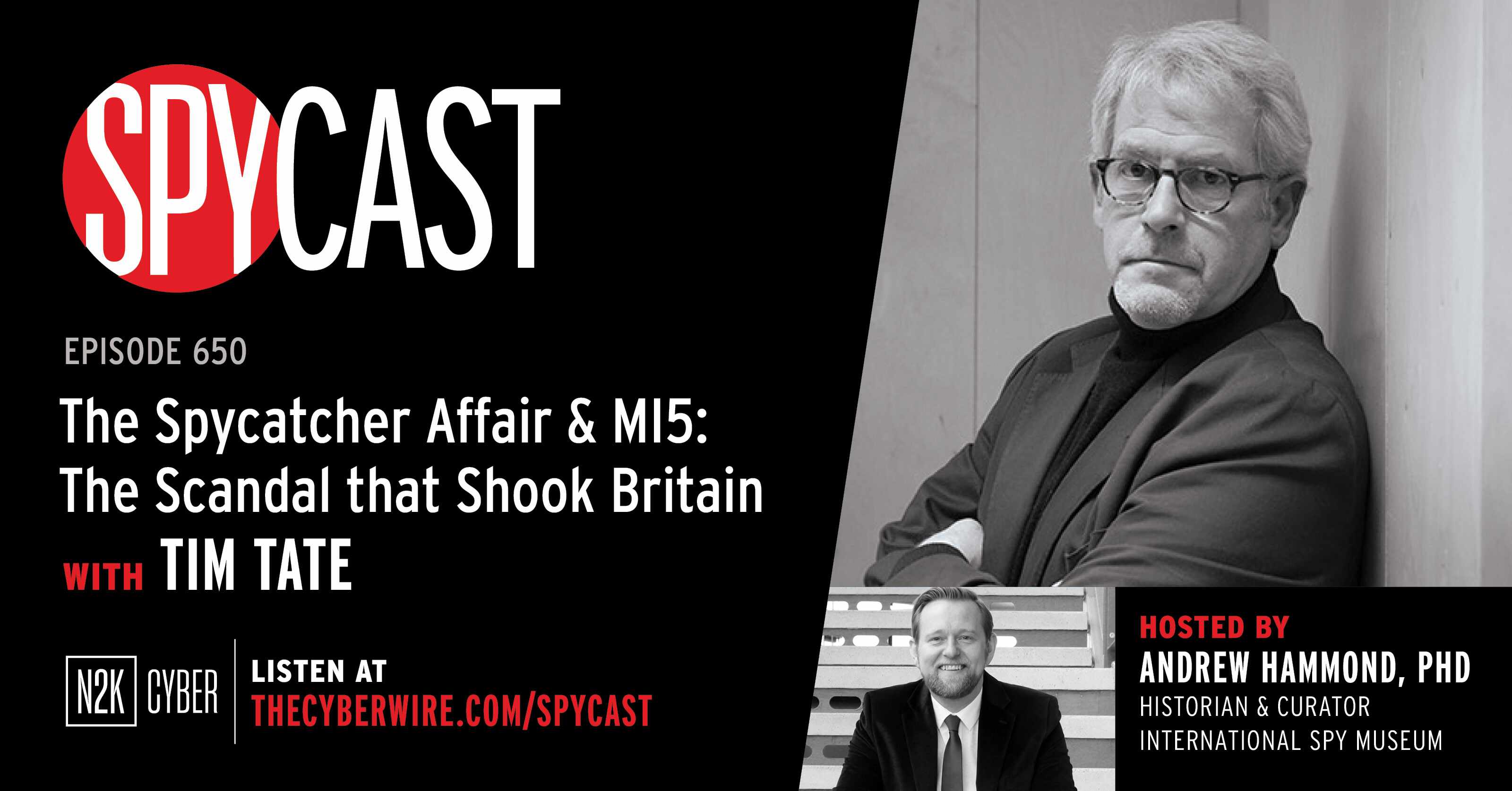
The Spycatcher Affair & MI5: The Scandal that Shook Britain with Tim Tate
Summary
Tim Tate (Website) joins Andrew (X; LinkedIn) to discuss the Spycatcher Affair. Tim is a best-selling author and award-winning filmmaker.
What You’ll Learn
Intelligence
- Peter Wright: His background and motives
- The contents of Spycatcher including the exposure of alleged soviet moles
- The UK’s efforts to keep their secrets secret
- The lasting effects of the Spycatcher Affair
Reflections
- Personal secrecy vs. public security
- Censorship and free speech
And much, much more …
Episode Notes
In 1987, Peter Wright, former MI5 officer and assistant director, published Spycatcher: The Candid Autobiography of a Senior Intelligence Officer. Banned in England but widely available and quite popular in Scotland, Australia, and beyond, the contents of Wright’s book spread fast, and would go on to change public perception of intelligence and espionage in the UK forever.
This week on SpyCast, Andrew was joined by Tim Tate, best-selling author, documentary filmmaker, and investigative journalist. He has authored 20 non-fiction books, including his newest book: To Catch a Spy, which explores the infamous Spycatcher Affair and its lasting effect on British public life. Tune in to learn more!
And…
Tim was born in Kolkata (formerly Calcutta), India, the capital of West Bengal state. Kolkata is a fascinating city, often regarded as a cultural epicenter of India – It’s home to India’s largest library and oldest zoo, The Great Banyan Tree, and the world’s oldest polo club!
Quotes of the Week
"[Wright] found truly acres of paperwork from old files which had been disregarded and hadn't been properly followed up on and leads that hadn't been properly followed. And when he pulled at them, those threads of evidence, and when he chased it down, what he found, as often as not, was genuine reason to suspect that the penetration, the widespread penetration, was real and serious.” – Tim Tate.
Resources
SURFACE SKIM
*Spotlight Resource*
- To Catch a Spy: How the Spycatcher Affair brought MI5 in from the Cold, Tim Tate (Icon Books, 2024)
*SpyCasts*
- The Counterintelligence Chief with FBI Assistant Director Alan Kohler (2023)
- St. Ermin’s Hotel, London – The History of a Legendary Spy Site with Stephen Duffy (2023)
- The Information Battlespace – Foreign Denial and Deception with Bill Parquette (2022)
- Dealing with Russia – A Conversation with Counterintelligence Legend Jim Olson (2022)
*Beginner Resources*
- How the Spycatcher case made MI5 more transparent, Times Radio, YouTube [10 min. video]
- Peter Wright, J. Simkin, Spartacus Educational (2020) [Short biography]
- The history of MI5, MI5 (n.d.) [Index of MI5 history]
DEEPER DIVE
Books
- To Catch a Spy: The Art of Counterintelligence, J. Olson (Georgetown University Press, 2021)
- Traitors Among Us: Inside the Spy Catcher's World, S. A. Herrington (Harvest Books, 2000)
- The Spycatcher Affair, C. Pincher (St. Martin’s Press, 1988)
- Spycatcher, P. Wright (Heinemann, 1987)
Articles
- National Archives: Thatcher was desperate to stop Spycatcher publication, S. Berg, BBC (2023)
- MI5 missed early chance to expose Soviet agent Kim Philby, files reveal, C. Davies, The Guardian (2022)
- Public Perceptions of UK Intelligence, D. W. B. Lomas & S. Ward, The RUSI Journal (2022)
- The Roger Hollis Case Revisited, D. Levy, International Journal of Intelligence and Counterintelligence (2019)
- Kim Philby, Spies, and the Dangers of Paranoia, M. Gladwell, The New Yorker (2014)
- Spycatcher: The Commodification of Truth, D. Burnet & R. Thomas, Journal of Law and Society (1989)
Video
- British Patriot or Soviet Spy? The Case of Roger Hollis, The Institute of World Politics, YouTube (2015)
Primary Sources
- Peter Wright Case (Part 1) (1987)
- Peter Wright Case (Part 2) (1987)
- Retired Spy Claims Cover Up in British Service (1984)
- The Hollis Affair (1981)
- The “Zinoviev” Letter Investigation (1924)
- The Zimmermann Telegram (1917)
*Wildcard Resource*
- Areopagitica (1644) by John Milton
- Illegally published in the UK in protest to the Licensing Order of 1643, this polemic has since become one of the most influential documents defending the right to free speech and free publication.


